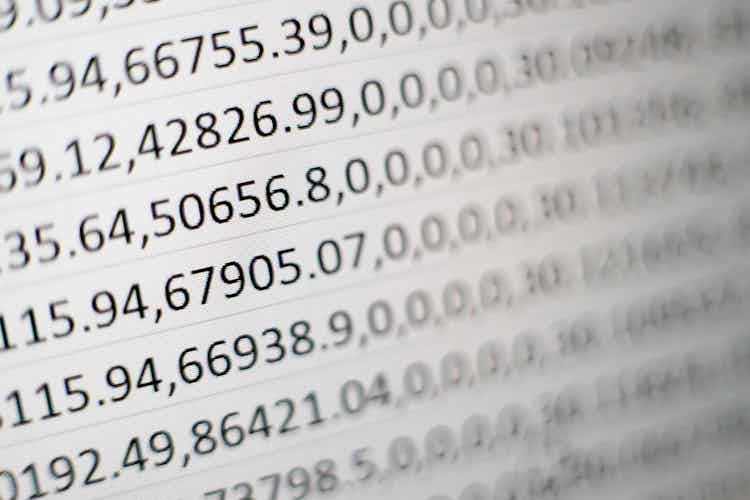It is indicative of the slow burn of the Open Banking reforms that the vast majority of people may never have heard of it. In simple terms, this is a series of reforms, initially introduced by the European Union, to regulate how your financial information is used. For example, financial institutions have for many years used customer spending patterns for targeted marketing. Open Banking means that all UK regulated banks are obligated to let you share this information with other authorised service providers.
To what types of financial accounts does Open Banking apply?
The original concept allowed data from all “payment accounts” to be shared with authorised third parties. It is important to note that only online banking and mobile banking accounts can participate in Open Banking. The full range of accounts that will eventually be involved in Open Banking includes
- Current bank accounts
- Credit cards
- Prepaid cards
- Savings accounts
The initial rollout of Open Banking was limited to current bank accounts, but gradually this is being expanded. Brexit will not impact Open Banking, with the UK still an active partner in this venture.
Do I need to share my data?
The key to Open Banking is that the default position is not to share your data with authorised third parties. Instead, you have to actively allow third parties access to information financial institutions hold about you. However, as many people find, a detailed analysis of your spending can offer exciting opportunities to save money.
How is my information shared?
Only when you dig a little deeper into Open Banking do you become aware of how the system works. The majority of those using Open Banking will do so via Application Programming Interfaces (APIs). Perhaps the best example of an API is the Facebook application on your smartphone, which allows you to communicate with Facebook. An API is simply the "middleman" between your mobile phone and Facebook. This is where it starts to get a little technical!
Before we go any further, it is worth noting that Open Banking services must still adhere to General Data Protection Regulations (GDPR). These regulations cover data protection and privacy in the UK and Europe. There are also comparable regulations worldwide that will come into play as the international take-up of Open Banking continues to grow.
No login details required
Historically, to give third party access to your banking information, you needed to provide them with your login details. However, even if the third party was trustworthy and reputable, this still gave many people nightmares about data security!
Using the API system, once you authorise a third-party application, they will have direct access to your information without your login details. The vast majority of online services now offer access via the API system, which is proven to be safe and secure. However, different parties can be allocated access to various elements of your financial information due to how the system is set up. This is yet another example of how regulators have handed back power to consumers.
The pros and cons of Open Banking
The key to services such as Open Banking is finding a balance between accessing information while maintaining security. Even though this service has been around since 2018, it is only now becoming more broadly recognised. The ongoing growth in FinTech companies, offering a vast number of online applications, has prompted regulators to react.
The pros of Open Banking
We live in a day and age where online apps are second nature to many of us. There are obvious advantages to Open Banking, but also many you may not have considered.
Increasing competition
Historically, financial institutions have been keen to hold onto your spending data and use this to undertake targeted marketing exercises. However, the fact that you can now authorise third parties to access your information has injected a considerable element of competition. In the past, your bank may have offered access to additional services such as credit cards. They wouldn't promote the credit cards of their competitors, but under Open Banking, there are no such barriers.
Reducing the cost of financial services
A by-product of increased competition within the financial sector has been reducing the cost of numerous financial services. Fortunately, the "old financial dinosaurs" have now been dragged into the modern online world, many by the erosion of their profit margins! However, it is also essential to maintain the quality of service provided and be aware of potential cost savings. Long may this continue!
One-stop shop
There is nothing worse than logging onto four of five different financial accounts to see your balances, recent activity and make payments. Under the Open Banking system, authorised third-party applications can bring all your balances and recent activity under one roof. Many will also allow you to make payments directly to individuals or other financial institutions without the need to access the likes of MasterCard or Visa, for example.
Genuinely helpful services
It is impossible to list the number of different financial services available today which complement traditional banking. One example would be mobile phone apps that can analyse your spending habits and highlight areas of potential cost savings. It can be advantageous to see a basic summary of your spending habits, showing where you spend most of your money. Do I really spend that much in Morrisons?
Regulatory protection
There are obvious concerns when it comes to allowing third parties to access private and confidential information. Therefore many will be relieved to see the protection offered by the Financial Conduct Authority (FCA) and European regulators. Not only are financial institutions already authorised by the various regulatory bodies, but those third parties accessing your information also need to be authorised. Consequently, in the event of financial misconduct by an authorised third party, any losses would typically be repaid by your bank or via the industry compensation schemes.
If you allow an unauthorised third party to access your information, the level of protection is reduced. In many cases, you may not be eligible to reclaim losses. While you can always check the search engines for recent feedback on a service provider, you can also access the FCA Register. This lists those parties authorised to access your financial data to provide specific services.
The cons of Open Banking
The Open Banking system has been many years in development. Even though there are various levels of protection and security, there are still potential drawbacks you should be aware of.
Customer apathy
The very fact that the Open Banking era officially began in 2018, but is still not recognised by many people, says a lot. But, to be fair, during that time, we have encountered Brexit and, more recently, the Covid-19 pandemic. One of the challenges, as we advance, is educating consumers about the benefits of Open Banking. While progress is certainly being made in this area, it will take time. However, until there is wider take-up of the service, this will stifle trust, investment by third parties and the depth of apps and services available.
Non-personal approach
Many people highlight the so-called non-personal approach of the Open Banking system. In reality, personal banking disappeared many years ago with a massive number of bank branch closures. In addition, the Internet has changed the financial sector, reduced costs and extended the reach of financial institutions. As a result, those looking for a personal banking service may need to look elsewhere. On the flip side, the more known about your financial habits, the greater access to products and offers tailored to your specific circumstances – a form of automated personalisation.
New kids on the block
As we alluded to earlier, many of the world's major financial institutions rested on their laurels for too long. While they were unwilling and sometimes unable to move with the online revolution, many new banks emerged. These online banks have managed to reduce costs, maximise marketing opportunities and continue to erode the market share of traditional financial giants. Many might argue that Open Banking is too little too late, but many people still have a deep-seated trust in their long-term banking providers.
Exposure to fraud
One of the significant concerns about Open Banking has been the potential exposure to fraud and unauthorised use of financial data. As we touched on above, there are various layers of security and even compensation, but no service is fool-proof. It is just as important for consumers to be vigilant as it is for financial institutions and authorised third parties to act appropriately. The sharing of personal data will always be an issue for many people, with some seeking a level of security that will never be reached.
Does Open Banking have an international reach?
While many of us focus on the UK and European financial services, it is crucial to recognise that Open Banking is used worldwide. The number of countries now using the system continues to grow and as of September 2021 includes:
- South Korea
- India
- Australia
- Canada
- Hong Kong
- Japan
- Singapore
- New Zealand
There may be potential for Open Banking partnerships with regulators in the US and Latin America, potentially huge markets. The ever-expanding list of countries recognising Open Banking reflects the global business world we live in today. It may have been a slow burn in the early days, but there is now greater recognition and acceptance of Open Banking.
The opportunity to create a bridge between different countries, different regulations and different data protection laws will be challenging. However, the potential is vast!
Which industries will benefit most from Open Banking?
There are very few industries that will not benefit from Open Banking. However, aside from the traditional financial sector, there are other industries to consider, which include:
Digitised lending
We already have various financial service providers that can authorise or reject a lending application in a matter of minutes. This system is likely to be even more streamlined in years to come, using Open Banking as a form of reference. Third parties will have access to client income, financial transactions, assets, savings and more. Crucially, the information will be real-time and up-to-date.
Credit referencing agencies
The calculation of personal credit scores can only be improved with access to a range of up-to-date information via the Open Banking service. Some financial institutions are quicker than others to report missed payments and other financial issues. Consequently, the information on your credit file may not be up-to-date. Access to raw financial data will allow credit rating agencies to use their formulas and algorithms to assess your creditworthiness. This is potentially a win-win for individuals and businesses.
Private landlords
Like the financial industry, the property sector has been slow to recognise and accept the online revolution. Thankfully, things are changing. There is already an array of third-party services allowing private landlords access to the financial information of potential tenants. Complex algorithms will analyse spending habits and identify would-be tenants who have a stable financial background.
These are just three examples of industries already benefiting from the Open Banking revolution, with much more to follow. Others will undoubtedly emerge going forward, but the authorities behind Open Banking need to maintain and strengthen momentum where possible.
Is Open Banking for you?
Looking at the structure of Open Banking and how it has been adapted in recent years, there is not much more than the authorities can do. We now have multiple layers of security, data protection regulations and even compensation for those duped by authorised third parties. It will be interesting to see whether this service can compete with FinTech companies in the new online era.





